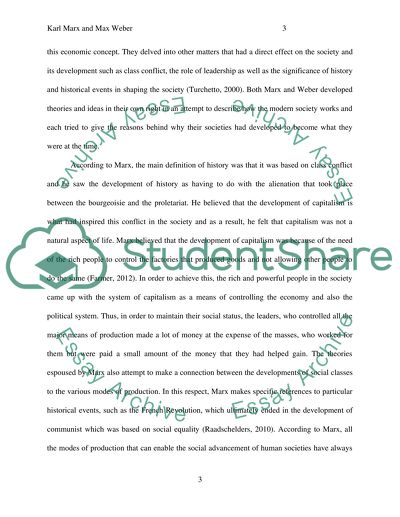Cite this document
(“Karl Marx and Max Weber compared Essay Example | Topics and Well Written Essays - 2000 words”, n.d.)
Karl Marx and Max Weber compared Essay Example | Topics and Well Written Essays - 2000 words. Retrieved from https://studentshare.org/sociology/1631649-karl-marx-and-max-weber-compared
Karl Marx and Max Weber compared Essay Example | Topics and Well Written Essays - 2000 words. Retrieved from https://studentshare.org/sociology/1631649-karl-marx-and-max-weber-compared
(Karl Marx and Max Weber Compared Essay Example | Topics and Well Written Essays - 2000 Words)
Karl Marx and Max Weber Compared Essay Example | Topics and Well Written Essays - 2000 Words. https://studentshare.org/sociology/1631649-karl-marx-and-max-weber-compared.
Karl Marx and Max Weber Compared Essay Example | Topics and Well Written Essays - 2000 Words. https://studentshare.org/sociology/1631649-karl-marx-and-max-weber-compared.
“Karl Marx and Max Weber Compared Essay Example | Topics and Well Written Essays - 2000 Words”, n.d. https://studentshare.org/sociology/1631649-karl-marx-and-max-weber-compared.


